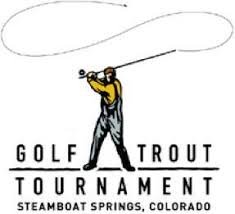Save the Date! November 1st-3rd
Hotel Colorado in Glenwood Springs
The annual CTU Fall Rendezvous will take place at the Hotel Colorado November 1st through the 3rd in Glenwood Springs. Join members from across the state for a weekend of volunteer leadership trainings, workshops on science and conservation, networking opportunities, the CTU annual awards, a fly fishing film night, social happy hours, and of course, fishing! Stay tuned to the webpage for more information and registration coming in early September.
Want to get started early? CTU is now accepting nominations for the 2024 Annual Awards. Colorado Trout Unlimited’s annual awards are intended to recognize outstanding chapter and individual achievements, to make known to our members the wide range of TU volunteer efforts statewide, and to help export enthusiasm and good ideas to all of our chapters.
Glenwood Springs, Colorado, nestled in the Rocky Mountains, is renowned for its stunning natural beauty and therapeutic hot springs. Founded in the late 19th century, this historic town quickly became a popular destination for health-seekers and adventurers drawn by its promise of healing waters and scenic landscapes. Visitors can enjoy a variety of outdoor activities, including fishing the Roaring Fork Valley.
Hotel Colorado, built in 1893 by silver baron Walter Devereux, has been a cornerstone of Glenwood Springs for over 125 years, offering guests a timeless retreat with a rich history. Throughout its storied past, the hotel has served various roles, including a temporary White House and a Navy hospital during WWII. Restored in the early 1990s, Hotel Colorado continues to provide exceptional service and invites guests to create lasting memories. Call ahead for the CTU group rate!
What is Rendezvous?
Rendezvous is a sharing event where TU volunteers, supporters, and staff come together to learn current happenings in science, restoration, advocacy, and community outreach. The weekend program features our annual membership meeting and elections, special workshops on key conservation issues and practical skills to strengthen our local chapters, and plenty of fun and camaraderie with other dedicated TU members and volunteer leaders.
It is our flagship event for volunteer leaders with local chapters and others who are looking to get more involved in TU. Over the weekend you might learn about topics as diverse as TU's work on river protection in your region, how to be more effective with your online communications, or how to engage youth with your local angling and conservation efforts.
And from local fishing to fun evening events and plenty of time to connect with old friends and make new ones!



























